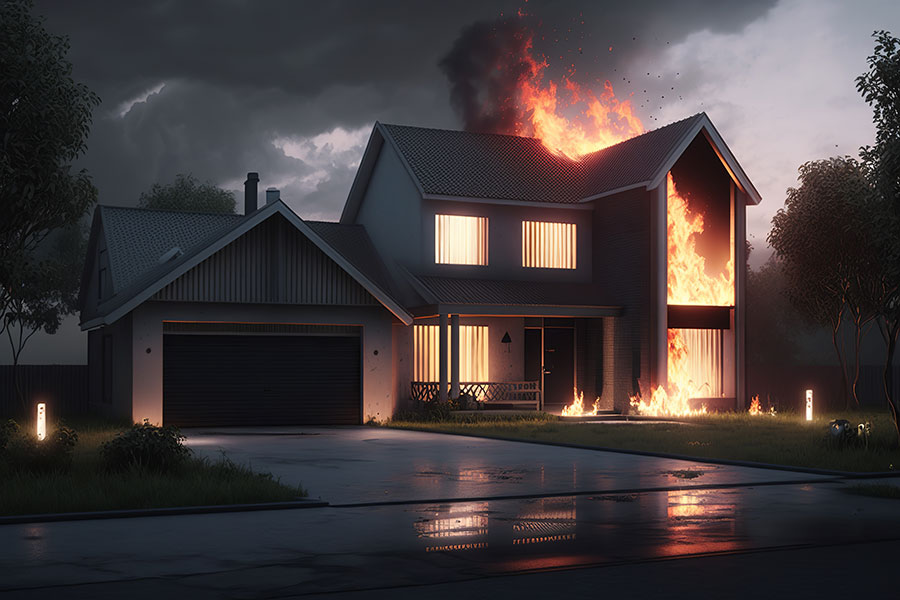You’ve probably seen news reports of the devastating fires that swept through southern California last month. At last count, authorities say almost 17,000 homes were destroyed.
I bet each time you saw a teary-eyed homeowner picking through charred rubble, you thought, “What should I do to be prepared?”
The answer isn’t complicated…the same thing that responsible government entities, forward-thinking institutions, and well-run companies do—have a disaster preparedness plan in place. You need your own personal version.
And the place to start is with an updated, clear insurance policy (purchased from a reputable company and a licensed, trustworthy insurance agent).
Now is a perfect time for an insurance review. Here are the seven issues you’ll want to discuss:
- Replacement. Ask your agent if your insurance policy covers only the current value of the property that was destroyed, or if your policy has so-called “replacement cost coverage.” I highly recommend you have replacement cost coverage. Why? Because it might cost more (perhaps even a lot more) to replace the property you lost than it was worth at the time of the fire.
- Natural disasters. Typically, a basic homeowners insurance policy either does not cover or greatly limits coverage for other natural disasters, such as a loss by water (flood) or wind (hurricane, tornado, etc.). This kind of “extra” protection can be obtained through a special policy. Ask your agent what your policy covers and if an additional, separate policy might be in order.
- Exclusions. Make sure you discuss with your agent all the things your current policy excludes. The worst time to learn about an unexpected exclusion is after a disaster has taken place.
- Valuables. Most homeowners’ policies offer limited coverage for special valuables and collections. Make sure you inform your agent about such possessions (e.g., jewelry, artwork, etc.). Discuss what special endorsement riders might be added to your policy to cover the loss of these things. Speaking of which…
- Collections. Do you have a priceless possession or valuable collection? It may be valuable to you, but unless it has been officially appraised, you’re going have a tough time convincing the insurance company you had a mint condition Babe Ruth rookie card, a full set of Beanie Babies, or a Van Gogh painting you picked up at a garage sale.
- Photo or video images. Here’s when a picture is worth a thousand words. Walk through your home with a video camera rolling. Seriously, create a video inventory of your possessions, and clearly identifying all the contents of your home.
- Savings. You can’t insure every little thing. This is where adequate savings need to be part of your disaster contingency plan. Work to build up an emergency savings fund equal to six months of gross annual income.
Your level of preparedness will make the difference in whether a fire is just a huge aggravation, or…a total disaster.
I’ll close with this financial reminder. If—in addition to insurance coverage—you’re wondering, “How, in retirement, am I going to turn all that money I’m saving in my 401(k) or IRA into regular income I can use to pay my living expenses”? I’ve got a free tool you’re going to love.
It’s called the RISA (i.e., Retirement Income Strategy Assessment). In less than 10 minutes, it can show you what kind of retirement income plan best aligns with your personality, goals, and lifestyle. There’s no obligation, and you can access it by emailing me (bmoore@argentadvisors.com).
Then if you want to discuss your results further, give me a call!
Argent Advisors, Inc. is an SEC-registered investment adviser. A copy of our current written disclosure statement discussing our advisory services and fees is available upon request. Please See Important Disclosure Information here.

